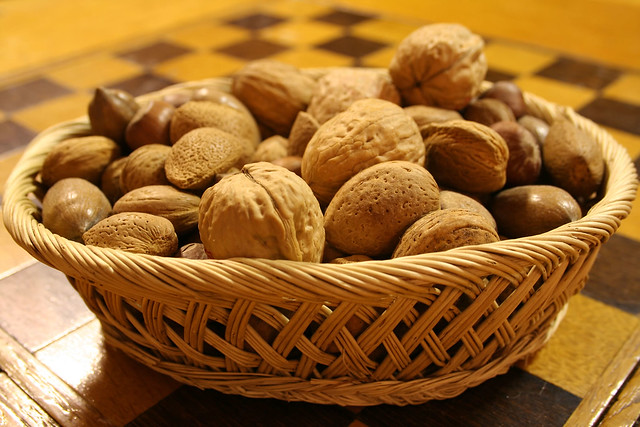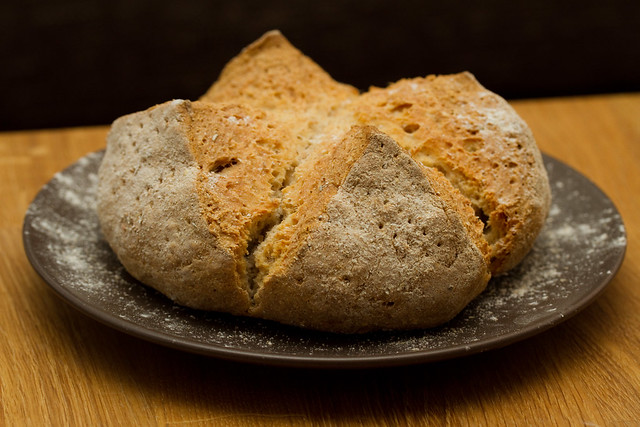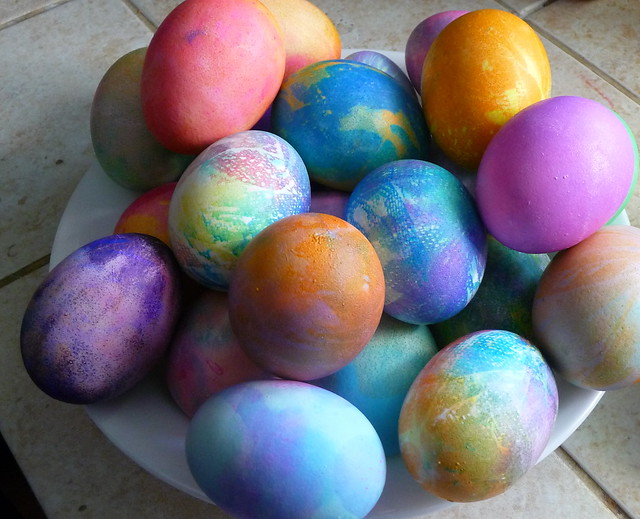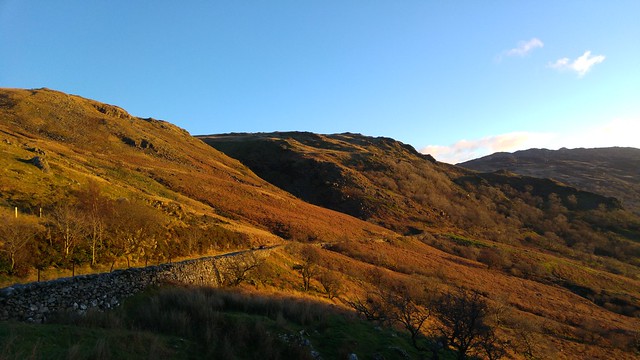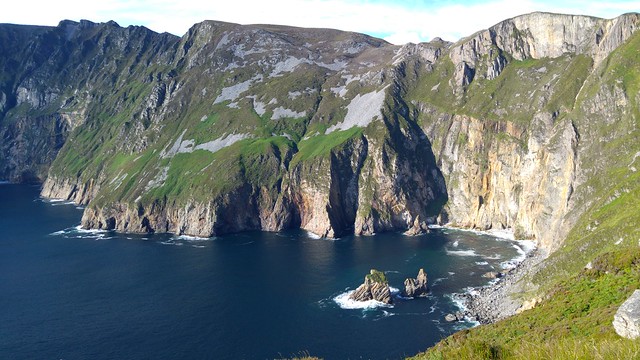Words for plums, damsons, sloes, and related words, in Celtic languages.
Words marked with a * are reconstructions.
| Proto-Celtic | *agrinyom/*agrinyā = sloe, small plum, berry |
|---|---|
| Old Irish (Goídelc) | áirne = sloe |
| Middle Irish (Gaoidhealg) | áirne, airnne = sloe, kernel áirnech = abounding in sloes áirnechán = little sloe |
| Irish (Gaeilge) | airne [ˈɑːɾˠn̠ʲə / ˈæːɾˠn̠ʲə] = sloe, gland airneog = sloe tree, blackthorn biotáille airní = sloe gin |
| Scottish Gaelic (Gàidhlig) | àirne [aːr̪n̪ʲə] = blackthorn, sloe (berry), wild plum (prunus domestica), damson (prunus domestica insititia) àirneag = sloe bush |
| Manx (Gaelg) | airn = sloe, bullace airnagh = sloe-covered soo airney = sloe jam drine airn = blackthorn, sloe tree (Prunus spinosa) |
| Middle Welsh (Kymraec) | eirin(en) = plum(s), damson(s), sloe(s) eirinha = to collect sloes or bullace eirinwyd = plum trees, sloe trees, blackthorn |
| Welsh (Cymraeg) | eirin(en) [ˈei̯rɪn] = plum(s), damson(s), sloe(s), bullace, berries, testicle(s) eirina = to collect sloes or bullace eirinog = bearing plums or sloes eirinwydd = plum trees, sloe trees, blackthorn eirin bwlas = bullace, wild plums (Prunus insititia), damsons eirin damasg/Damasgus = damson eirin Ffrainc/Ffrengig = prunes eirin gwlanog = peaches, apricots eirin gwynion = greengages eirin Mair = gooseberries eirin y moch = haws, hawthorn berries eirin morwydd = mulberries eirin peatus = nectarines eirin ysgaw = elderberries eirin y gors = crowberries |
| Old Cornish | yryn = sloes |
| Cornish (Kernewek) | eyrin(en) = sloe(s) |
| Middle Breton (Brezonec) | <hirin, irin = sloes yrinenn = blackthorn |
| Breton (Brezhoneg) | irin(enn) [ˈiː.rĩn(n)] = sloe(s), sloe gin; pupil, eye irina = to look for sloes irineg = a place with sloes irinenn = blackthorn |
Etmology: from the Proto-Indo-European *h₂ógeh₂ (berry) [source]. The English word acorn comes from the same root, via the Proto-Germanic *h₂ógeh₂ [source]
| Irish (Gaeilge) | pluma [ˈpˠlˠʊmˠə] = plum daimsín [ˈpˠlˠʊmˠə] = damson |
|---|---|
| Scottish Gaelic (Gàidhlig) | plumais / plùmbais [pl̪ˠumɪʃ / pl̪ˠuːmbɪʃ] = plum daimsin [dãĩmʃɪn] = damson |
| Manx (Gaelg) | plumbis = plum damsyl = damson |
| Welsh (Cymraeg) | plemys(en) = plum(s) |
| Middle Cornish (Cernewec) | pluman = plum plumbren = plum tree |
| Cornish (Kernewek) | ploum(en) = plum(s) ploum(en) sygh = prune(s) |
| Middle Breton (Brezonec) | prun(enn), prun(en) = plum(s), testicule(s) prunec = sloe grove prunenn, prunen = plum tree |
| Breton (Brezhoneg) | prun(enn) = plum(s), testicule(s) pruneg, prunek = plum grove prunenn = plum tree |
Etmology (plum): from the Middle English ploume/plomme (plum) from the Old English plūme/plume (plum), from the Proto-West Germanic *plūmā (plum), from the Latin prūnum (plum), from the Ancient Greek προῦμνον (proûmnon – plum). Prune comes from the same root [source]
Etmology (damson): from the Middle English damascene/damasyn/damacene (damson), from the Latin prūnum damascēnum (Damascene plum, plum of Damascus), from the Ancient Greek προῦμνον (proûmnon – plum) [source].
Sources: Wiktionary, Am Faclair Beag, Online Manx Dictionary, Teanglann.ie, eDIL – Electronic Dictionary of the Irish Language, In Dúil Bélrai English – Old Irish glossary, Geiriadur Prifysgol Cymru, Gerlyver Kernewek, Dictionaire Favereau, TermOfis, English – ProtoCeltic WordList (PDF), Etymological Dictionary Of Proto Celtic






